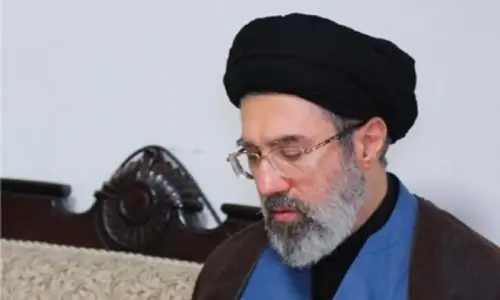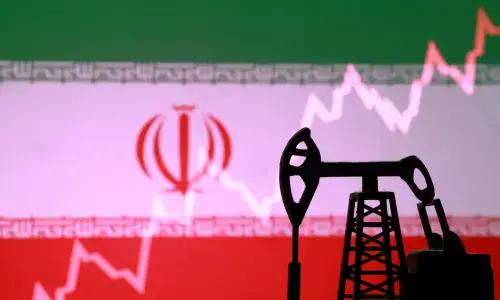ISLAMABAD: The controversial law seeking to curtail the powers of the chief justice of Pakistan (CJP) to take suo motu action and form benches technically became an act of parliament on Friday.
And despite a Supreme Court order halting the law’s implementation, the National Assembly Secretariat formally asked the Printing Corporation of Pakistan (PCP) to publish it in the official gazette.
After President Arif Alvi for a second time refused to assent to the bill passed by lawmakers in a joint sitting of the parliament on April 10, the Supreme Court (Practice and Procedure) Act 2023 has now become an act under Article 75(2) of the Constitution. This was announced officially by the National Assembly Secretariat through its official Twitter handle.
Later, the NA Secretariat released a handout and a copy of the letter signed by Additional Secretary (Legislation) Muhammad Mushtaq written to the PCP manager, stating that he had been directed to forward a copy of the act for publication in the official gazette.
NA Secretariat asks Printing Corporation of Pakistan to publish new act in official gazette
Such communication between the NA Secretariat and the PCP after the passage of the laws is a routine matter and the NA Secretariat does not issue any press releases in this regard. This time, however, it has not only issued a press release but also issued a copy of the letter in the wake of the ongoing executive-judiciary tussle over the issue of polls in two provinces.
Article 75(2) of the Constitution says that when the president has returned a bill to the parliament, it shall be reconsidered in a joint sitting. If it is again passed, with or without amendment, by the votes of most members of both houses, it is again referred to the president for their assent. If the bill was not signed by the president within 10 days, their assent would have been deemed granted.
Initially, the bill was approved by the federal cabinet on March 28 and then passed by both houses of parliament — the National Assembly and Senate. However, President Alvi refused to sign it into law with the observation that it travelled “beyond the competence of parliament”.
However, a joint session of parliament passed it again on April 10 with certain amendments and it was then again referred to the president for his assent.
However, three days later, the Supreme Court barred the government from enforcing the proposed legislation, saying the move would “prevent the imminent apprehended danger that is irreparable” as soon as the bill becomes an act of parliament.
“The moment that the bill receives the assent of the president or it is deemed that such assent has been given, then from that very moment onwards and till further orders, the act that comes into being shall not have, take or be given any effect nor be acted upon in any manner,” said an interim order issued by the eight-member Supreme Court bench headed by CJP Umar Ata Bandial, prompting a strong reaction from the government, which passed damning resolutions against the top court.
On April 19, the president, for a second time, refused to give his assent for the bill and sent it back to the parliament, maintaining that the matter was sub judice, or being considered by a judge or court.
According to the legislation, a three-member bench consisting of the chief justice and the two senior-most judges of the apex court will decide whether to take up a matter suo motu. Previously, this was solely the prerogative of the chief justice.
The law also states that every cause, matter or appeal before the apex court would be heard and disposed of by a bench, which will be formed by a committee comprising the chief justice and the two senior-most judges.
The legislation also includes the right to file an appeal within 30 days of the judgement in a suo motu case and that any case involving constitutional interpretation will not have a bench of fewer than five judges.
The bill would allow former prime minister Nawaz Sharif and other parliamentarians disqualified by the Supreme Court under suo motu powers (such as Jahangir Tareen) to appeal their disqualification within 30 days of the law’s enactment.
Published in Dawn, April 22nd, 2023































